Related Research Articles

St John's Wood is a district in the City of Westminster, London, England, about 2.5 miles (4 km) northwest of Charing Cross. Historically the northern part of the ancient parish and Metropolitan Borough of Marylebone, it extends from Regent's Park and Primrose Hill in the east to Edgware Road in the west, with the Swiss Cottage area of Hampstead to the north and Lisson Grove to the south.

General Charles Lennox, 4th Duke of Richmond, 4th Duke of Lennox, 4th Duke of Aubigny, was a British peer, soldier, politician and Governor-General of British North America.
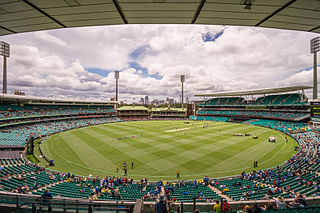
The Sydney Cricket Ground (SCG) is a sports stadium in the Moore Park suburb of Sydney, New South Wales, Australia. It is used for Test, One Day International and Twenty20 cricket, as well as, Australian rules football and occasionally for rugby league, rugby union and association football. It is the home ground for the New South Wales Blues cricket team, the Sydney Sixers of the Big Bash League and the Sydney Swans of the Australian Football League. It is owned and operated by Venues NSW, an agency of the Government of New South Wales who also hold responsibility for Stadium Australia and the Sydney Football Stadium.
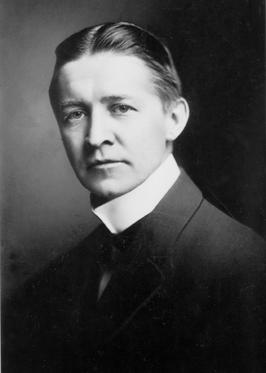
Bertram Grosvenor Goodhue was an American architect celebrated for his work in Gothic Revival and Spanish Colonial Revival design. He also designed notable typefaces, including Cheltenham and Merrymount for the Merrymount Press. Later in life, Goodhue freed his architectural style with works like El Fureidis in Montecito, California, one of three estates he designed.

Arthur Shrewsbury was an English cricketer and rugby football administrator. He was widely rated as competing with W. G. Grace for the accolade of best batsman of the 1880s; Grace himself, when asked whom he would most like in his side, replied simply, "Give me Arthur". An opening batsman, Shrewsbury played his cricket for Nottinghamshire County Cricket Club and played 23 Test matches for England, captaining them in 7 games, with a record of won 5, lost 2. He was the last professional to be England captain until Len Hutton was chosen in 1952. He was a Wisden Cricketer of the Year in 1890. He also organised the first British Isles rugby tour to Australasia in 1888.

Warwick Windridge Armstrong was an Australian cricketer who played 50 Test matches between 1902 and 1921. An all-rounder, he captained Australia in ten Test matches between 1920 and 1921, and was undefeated, winning eight Tests and drawing two. Armstrong was captain of the 1920–21 Australian team which defeated the touring English 5–0: one of only three teams to win an Ashes series in a whitewash. In a Test career interrupted by the First World War, he scored 2,863 runs at an average of 38.68, including six centuries, and took 87 wickets. He was inducted into the Australian Cricket Hall of Fame in 2000.
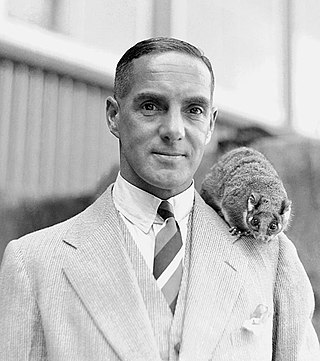
Herbert Sutcliffe was an English professional cricketer who represented Yorkshire and England as an opening batsman. Apart from one match in 1945, his first-class career spanned the period between the two world wars. His first-class debut was delayed by the First World War until 1919 and his career was effectively terminated in August 1939 when he was called up for military service in the imminent Second World War. He was the first cricketer to score 16 centuries in Test match cricket. He is most famous for being the partner of Jack Hobbs and the partnership between the two, Hobbs and Sutcliffe, is widely regarded as the greatest partnership of all time.

Clement "Clem" Hill was an Australian cricketer who played 49 Test matches as a specialist batsman between 1896 and 1912. He captained the Australian team in ten Tests, winning five and losing five. A prolific run scorer, Hill scored 3,412 runs in Test cricket—a world record at the time of his retirement—at an average of 39.21 per innings, including seven centuries. In 1902, Hill was the first batsman to make 1,000 Test runs in a calendar year, a feat that would not be repeated for 45 years. His innings of 365*, scored against New South Wales for South Australia in 1900–01, was a Sheffield Shield record for 27 years. The South Australian Cricket Association named a grandstand at the Adelaide Oval in his honour in 2003 and he was inducted into the Australian Cricket Hall of Fame in 2005. Hill is regarded as one of the best batsman of his era.

Arthur Fielder was an English professional cricketer who played as a fast bowler for Kent County Cricket Club and the England cricket team from 1900 to 1914. He played a major role in Kent's four County Championship wins in the years before World War I and toured Australia twice with the England team making six Test match appearances. He was chosen as one of Wisden's Cricketers of the Year in 1907.

Archibald Jackson, occasionally known as Archibald Alexander Jackson, was an Australian international cricketer who played eight Test matches as a specialist batsman between 1929 and 1931. A teenage prodigy, he played first grade cricket at only 15 years of age and was selected for New South Wales at 17. In 1929, aged 19, Jackson made his Test debut against England, scoring 164 runs in the first innings to become the youngest player to score a Test century.
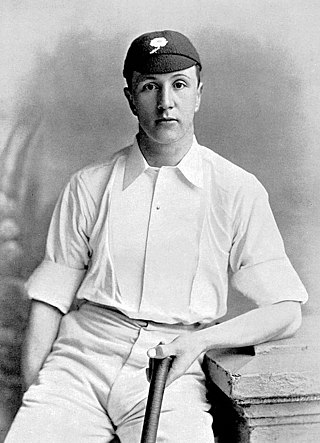
Frank Mitchell was an English international cricketer and rugby union player.

Arthur James Ledger Hill was an English cricketer. He scored the first-ever first-class century in India.

Wilton H. St Hill was a West Indian international cricketer who played in West Indies' first Test match during their inaugural Test tour of England. A right-handed batman who played in a variety of batting positions, he represented Trinidad in first-class cricket between 1912 and 1930 and played in three Test matches in total. Although his Test record was poor, he was highly regarded in Trinidad. In particular, writer C. L. R. James considered St Hill to be among the top batsmen in the world and dedicated a chapter of Beyond a Boundary to him. At the peak of his career, Lord Harris described him as the best batsman in the West Indies.
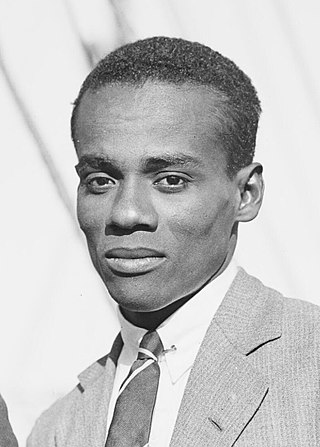
Edwin Lloyd St Hill was a Trinidadian cricketer who played two Test matches for the West Indies in 1930. His brothers, Wilton and Cyl, also played for Trinidad and Tobago; in addition, the former played Test matches for the West Indies.

Arthur James Summons was an Australian representative rugby union and rugby league player, a dual-code rugby international fly-half or five-eighth. He captained the Australian national rugby league team in five undefeated test matches from 1962 until 1964 and later also coached the side.
The South Africa national cricket team toured England between 16 May and 20 August 1901. They played 15 first-class cricket matches, and 10 other matches during their visit. Although a number of matches played by South Africa during the 1880s and 1890s were retrospectively granted Test cricket status, as the 1901 touring side did not play a representative England side, they did not compete in any Test matches. The South Africans were captained by Murray Bisset. The tour went ahead despite the ongoing Boer War, which suspended first-class cricket in South Africa between 1899 and 1902.

Bertram Fletcher Robinson was an English sportsman, journalist, editor, author and Liberal Unionist Party activist. During his life-time, he wrote at least three hundred items, including a series of short stories that feature a detective called 'Addington Peace'. Following his untimely death at the age of just 36 years, speculation grew that Robinson was the victim of a curse bestowed upon him by an Egyptian antiquity at the British Museum, which he had researched whilst working as a journalist for a British newspaper. However, Robinson is perhaps best remembered for his literary collaborations with his friends and fellow Crimes Club members, Arthur Conan Doyle, P. G. Wodehouse and Max Pemberton.
Bertram Arthur Clements was an English footballer who represented Great Britain at the 1936 Summer Olympics. Clements played amateur football for Casuals. He also played cricket for Norfolk at minor counties level, making 49 appearances in the Minor Counties Championship either side of the Second World War.
Bertram Colgrave was a medieval historian, antiquarian and archaeologist, specializing on the lives of the early saints in Anglo-Saxon England.
Bertram Lennox Peel was an English first-class cricketer.
References
- ↑ "Player Profile: Arthur St Hill". Cricket Archive. Retrieved 19 December 2013.